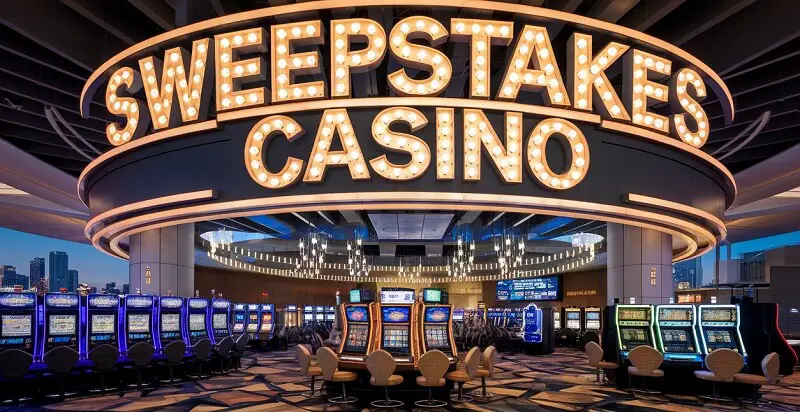California’s gaming landscape is a complex tapestry of tribal casinos, industry giants, and emerging sweepstakes platforms. This diverse ecosystem reflects the state’s unique regulatory environment, where tribal sovereignty, public opinion, and technological innovation intersect.
The following article explores the current state of gaming in California, highlighting the dominance of tribal casinos, the challenges faced by major industry players, and the rise of sweepstakes casinos as a contentious alternative.
Tribal Casinos: The Cornerstone of California Gaming
California is home to more than 80 land-based casinos, all owned and operated by Native American tribes. This monopoly on casino gaming is a result of the state’s commitment to tribal sovereignty and exclusivity agreements. The Agua Caliente Band of Cahuilla Indians, for example, operates multiple casinos across Southern California, including locations in Palm Springs, Rancho Mirage, and Cathedral City.
Industry Giants: Locked Out of the Golden State
Despite California’s status as a major hub for competitive gaming and esports, traditional online gambling operators like DraftKings and FanDuel are currently unable to enter the market. This exclusion stems from the state’s strict regulations and the rejection of two sports betting initiatives in the November 2022 election.
Failed Initiatives:
- Proposition 26: Aimed to legalize in-person sports betting at tribal casinos and horse race tracks
- Proposition 27: Sought to legalize online sports betting throughout the state
The resounding rejection of both measures by California voters has effectively delayed any potential entry of major online sportsbooks until at least November 2026.
The Rise of Sweepstakes Casinos
In the absence of traditional online gambling options, sweepstakes casinos have emerged as a popular alternative in California. These platforms operate under a different legal framework, using virtual currencies instead of real money.
Tribal Casinos and Industry Sports Betting Operators Unite Against Sweepstakes Casinos
While California tribes and industry giants continue to fight each other for the rights to online sports betting, they’re willing to agree on one thing – they don’t approve of the booming sweepstakes casino market in the state.
Indian Gaming Association conference chair Victor Rocha recently hosted a podcast with Sports Betting Alliance president Jeremy Kudon as a guest.
Kudon is a major influential figure from the tribal gaming side, and the Sports Betting Alliance represents DraftKings, FanDuel, BetMGM and Fantics, the four biggest online sports betting companies in the U.S.
The content of the podcast made it clear – California tribal operators and big-name national gambling brands are presenting a united front against sweepstakes gaming sites.
“These sweepstakes sites are taking billions of dollars in revenue,” Kudon said. “I think it’s supposed to be right now $2 billion in revenue for these sweepstakes sites. And they’re predicting they’re going to get up to $4 billion by the end of 2025. That’s money that could be going to the states. That’s money that could be going to the tribes.”
The podcast specifically targeted Fliff, the most popular sweepstakes sports picks site in the U.S. Rocha and Kudon also discussed fantasy sports pick’em sites like Underdog Fantasy and PrizePicks.
Outlook For Sweepstakes Gaming In California
While California tribes and the Sports Betting Alliance are clearly opposed to sweepstakes gaming, California players continue to flock to sweeps casinos and sports picks apps.
The sweepstakes boom isn’t just happening in California, either. Sweeps casinos are operating in more than 40 U.S. states, all of which govern sweepstakes gaming with laws nearly identical to California.
The battle for California gaming revenue wages on, but sweeps casinos aren’t going anywhere any time soon.

